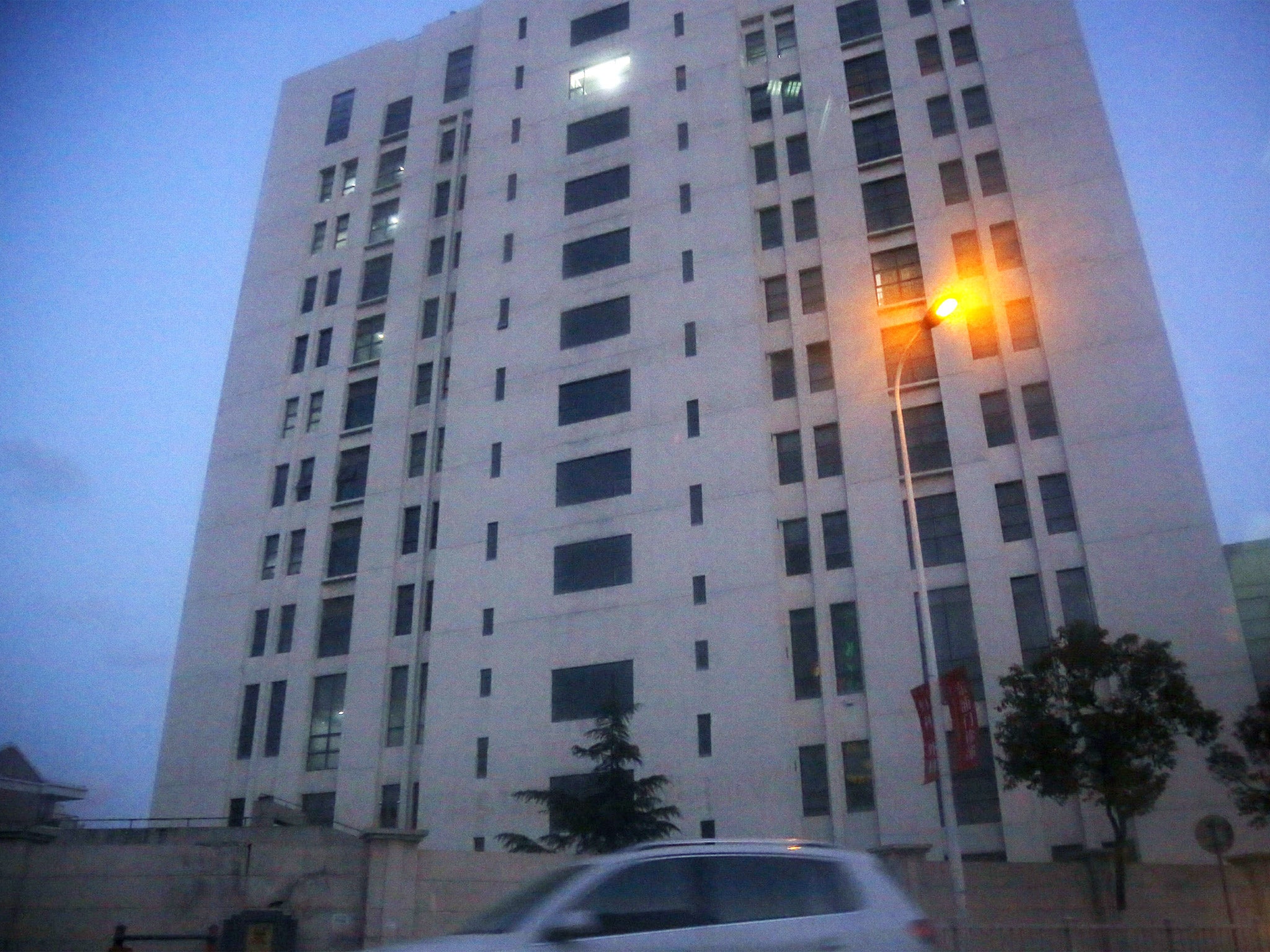Cyber-assault HQ: how US is under attack from this office in Shanghai
Online security firm traces breaches to building occupied by Chinese military

A barrage of malicious cyber-attacks against computer networks in the United States and other countries over several years has been sourced by a private US security firm to a single building on the fringes of Shanghai, which, it says, is occupied by the Chinese military.
A 60-page report released by Mandiant, a Virginia-based firm that specialises in cyber-espionage, concludes that hundreds or perhaps thousands of English-speaking Chinese computer experts toil daily inside the anonymous-looking 12-storey building in the Pudong district of Shanghai. ‘Unit 61398’, as it is known, hacks into foreign networks on behalf of the People’s Liberation Army (PLA), Mandiant alleges.
“The nature of Unit 61398’s work is considered by China to be a state secret; however, we believe it engages in harmful computer network operations,” the security firm said in the report, which drew instant rebukes from the Chinese government. “It is time to acknowledge the threat that is originating in China, and we wanted to do our part to arm and prepare security professionals to combat that threat effectively.”
The company asserted that the unit, one of several in China believed to be involved in invading overseas computer systems, had “stolen hundreds of terabytes of data from at least 141 organisations across a diverse set of industries beginning as early as 2006”. While most of the activity targeted corporations in the United States are smaller number is located in Canada and Britain, it said.
Cyber-espionage is becoming an increasingly urgent worry in Washington. The concern is not just that China, as well any number of other countries, is successfully stealing corporate information – for example merger plans, design blueprints, pricing documents or negotiating strategies – but that it is developing the capacity to sabotage physical infrastructure networks in the US like gas pipelines or power grids.
“In the cold war, we were focused every day on the nuclear command centres around Moscow,” one senior defence official was cited as saying by the New York Times, which first revealed the contents of the Mandiant report. “Today, it’s fair to say that we worry as much about the computer servers in Shanghai.”
President Barack Obama included a call to arms to confront the cyber-threat in his State of the Union address last week. “We know foreign countries and companies swipe our corporate secrets,” he said. “Now our enemies are also seeking the ability to sabotage our power grid, our financial institutions, our air-traffic control systems. We cannot look back years from now and wonder why we did nothing.”
Beijing continues to deny sanctioning such activity. “Hacking attacks are transnational and anonymous,” foreign ministry spokesman Hong Lei said. “Determining their origins are extremely difficult. We don’t know how the evidence in this so-called report can be tenable.” When BBC journalists approached the building they were briefly detained and forced to relinquish their footage.
Unit 61398 has been known both to private cyber-security firms as well as US intelligence for a while and is sometimes referred as the ‘Comment Crew’ because it has been known to infiltrate online forums and leave comments. The Mandiant report does not name any victims but says that the 141 companies already infiltrated span 20 major industries.
American companies known to have been targeted by Comment Crew, however, include Coca Cola at a time when it was considering a take-over of a Chinese juice company and RSA, a technology company that creates computer codes to protect confidential corporate and government databases. Alarm bells sounded last September when a unit of Telvent which supplies equipment enabling utility companies remotely to operate valves and switches on gas and oil networks had been invaded by unidentified cyber-intruders.
Responding to the report, White House spokeswoman Caitlin Hayden reiterated only that the United States “has substantial and growing concerns about the threats to U.S. economic and national security posed by cyber intrusions, including the theft of commercial information.”
The Mandiant report acknowledges that while it has traced assorted cyber-intrusions to servers precisely in the rather run-down district of Pudong where the building occupied by Unit 61398 stands, it cannot be certain they are actually within its walls. But to suppose they are not is barely plausible, the firm says.
Join our commenting forum
Join thought-provoking conversations, follow other Independent readers and see their replies
Comments
Bookmark popover
Removed from bookmarks